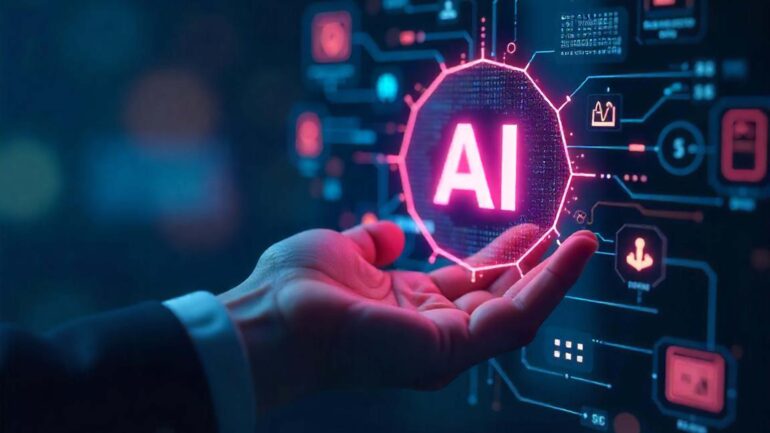The AI Paradox – Why Companies Are Ditching Bots and Bringing Back Humans

In a twist of tech irony, some companies that rushed to replace workers with AI, only to face operational chaos and customer backlash.As bots faltered in empathy-driven roles, these firms are now rehiring laid-off staff, spotlighting AI’s limits in human-centric tasks.This paradox underscores a shift toward “humans-in-the-loop” strategies, where AI amplifies rather than eliminates human potential for true productivity gains.
- AI’s Overhyped Automation Fails in Empathy Roles: Companies overestimated AI’s ability to handle customer service and HR tasks requiring nuance and subjectivity, leading to rehiring efforts at firms like IBM and Klarna to restore quality and satisfaction.
- Embrace Human-AI Collaboration for Superagency: Experts like Reid Hoffman advocate for “humans-in-the-loop” models that combine human creativity with AI efficiency, unlocking exponential productivity instead of outright job replacement.
- Upskilling and People-Centric Strategies Drive Long-Term Success: As per PwC and economist Daron Acemoglu, organizations must prioritize employee retraining and inclusive AI integration to boost resilience, innovation, and economic growth in intergenerational workforces.
There is a paradoxical situation emerging in the tech sector – firings and rehirings. While news of tech sector layoffs are grabbing the headlines, we are also witnessing several instances of companies, that laid off employees, rehiring them. Commonwealth Bank of Australia had to backtrack and recall employees who were earlier fired to be replaced with AI bots. IBM was faced with a similar situation when AI bots failed to handle HR jobs that required empathy.
A few weeks ago, the Commonwealth Bank of Australia (CBA) laid off 45 customer service workers in July 2025, intending to replace them with an AI voice bot to reduce call volumes. IBM, that had fired some of their HR staff replacing them with AI bots, soon realized that the roles needed empathy which technology wasn’t capable of.
CBA initially claimed significant efficiency gains, but union investigations revealed increasing call volumes and operational strain, forcing CBA to backtrack. Following a workplace relations tribunal, CBA admitted it hadn’t adequately assessed the roles’ redundancy and offered reinstatement to the affected employees. A spokesperson apologized, emphasizing that the error stemmed from incomplete business considerations, and rehiring options were provided to address the AI’s under-performance.
IBM shed its workforce in 2023, replacing much of its HR division with a new AI-powered digital HR employee dubbed AskHR, which performed many regular human resources duties such as queries, documentation and leave approvals.
But the company soon realised that this AI bot was unable to perform many of the tasks that required empathy or subjectivity, and eventually rehired many workers to cover these gaps. The company’s CEO Arvind Krishna was quoted in the Wall Street Journal that despite its widespread adoption of AI, IBM’s workforce has actually increased.
What is now emerging is that companies had overestimated AI’s capabilities, particularly in customer-facing and HR roles, leading to rehiring efforts. Other firms, such as Duolingo and Shopify, have faced backlash from AI-driven changes but haven’t confirmed widespread rehiring of laid-off staff.
Klarna, a Swedish fintech company specializing in “buy now, pay later” services, laid off around 700 employees in 2022 as part of an AI-first strategy to automate customer service roles. The company claimed its AI chatbots could handle the work of 800 full-time staff, but by 2025, it admitted this led to reduced service quality and customer satisfaction. CEO Sebastian Siemiatkowski noted that customers preferred human interaction, prompting Klarna to rehire remote, contract-based workers, including students and rural employees, to restore a “human touch”. The move is described as a proactive enhancement rather than a failure, but it directly addresses AI’s shortcomings in handling complex queries.
Reid Hoffman, co-founder, LinkedIn, Manas AI & Inflection AI, in his book Superagency: What Could Possibly Go Right with Our AI Future, raised a pivotal question: How can companies harness AI to amplify human agency and unlock new levels of creativity and productivity in the workplace? “Amplify human agency” is the catch phrase that is now reappearing as ‘Humans-in-the-Loop’ in organizations that are taking a second-look at their strategy to implement AI as a replacement for human talent, instead of thinking how humans and AI can co-innovate. .
This is the new world that includes humans in the loop, bringing people and machines together in a state of superagency that increases personal productivity and creativity. This is the transformative potential of AI, a technology with a potential impact poised to surpass even the biggest innovations of the past, from the printing press to the automobile.
Consulting major PwC, in a report highlights the need for organization to recognize the need for upskilling and retraining. It urges companies to develop a citizen-led culture to provide employees the tools, platforms and incentives to learn and apply skills, and back it up through compensation and recognition. What is required in the design of a multilingual environment where data engineers, data ethicists, data scientists, and machine learning (ML) Ops engineers can collaborate with each other.
MIT economist and Nobel laurate, Daron Acemoglu makes a profound statement on why AI promises have not yet matched the actual performance; ““We’re using it too much for automation and not enough for providing expertise and information to workers.” In his opinion technological innovations that increase worker productivity while keeping people employed, which should sustain overall economic growth better.
In shaping the workplaces of the future that will comprise intergenerational workforces collaborating with AI agents, organizations that put people at the center of their AI strategies are likely to witness its exponential productivity gains. Getting this balance right will ensure that AI makes those workplaces faster; more resilient, creative and inclusive. AI certainly has a long-term future ahead of this short-term challenge!


